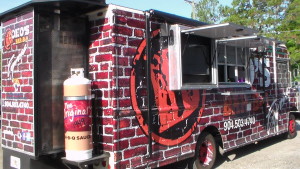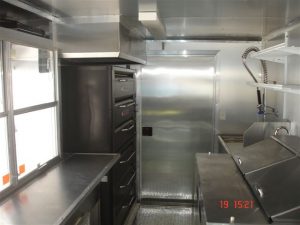 Health Permits
Health Permits
When I think of health inspections, I am reminded of an episode of the sitcom Friends. In this particular episode, Phoebe started dating a health inspector. The two would go on dates to restaurants and he would find health code violations and shut down those restaurants on the spot. Eventually, she became frustrated with his power, because he had closed all of her favorite restaurants. Needless to say it didn’t end well for those two.
Hollywood is known to exaggerate the truth, and that is most certainly the case here. In actuality, your local health department is there to help you maintain a safe eating environment for your customers. You should feel comfortable asking questions so that you can demonstrate knowledge of the laws.
If you have never worked in a commercial kitchen before, you may want to take a food safety course like ServSafe that is required in many states. There can be so many regulations that it is impossible to list them all here. Not only that, but every state and city will have its own nuances to those rules. Here are just a few things to take into consideration:
- Make sure you have thermometers on you at all times, and know how to calibrate these.
- If you need refrigeration, make sure your refrigeration works well and frequently record the temperatures of your food items. Also keep a thermometer in your fridge/freezer.
- Make sure you can adequately keep hot foods hot, and cold foods cold. Steer clear of the danger zone, that is the area between ideal food temperatures where bacteria can breed.
- You will need some sort of handwashing station, and kitchen utensil cleaning station. Different places may have different rules. For instance, ABQ requires a standard 3-compartment sink for kitchen supplies and a handwashing sink for employees. Whereas Bernalillo county requires only a gravity wash station for employee hand washing, and wash basins for kitchen supplies.
- The rules for sanitary solution may vary. Some cities may require a bleach solution, some may require quaternary ammonia, some may not care as long as you follow their general guidelines.
As you can see, there can be a lot of variance so again, know the rules pertaining to your area. Some of these rule differences can affect your operating funds, or even your workflow. One such example is a rule that affects both: commissary regulations.
 Commissary Kitchen
Commissary Kitchen
A commissary kitchen is a commercial kitchen, which is in good certification standing, that serves as a home base of operations. Each city/state has different rules regarding the need for a commissary kitchen, and the requirements of a commissary may change from place to place as well.
Here is a list of some of the requirements of a commissary:
- food preparation
- grey (waste) water disposal
- clean water supply
- food storage
- truck storage
- food waste disposal
Again, different places have different rules. Within Albuquerque for example, a commissary is only needed as a home base of operations. Literally, just a place that can serve as your food prep location. The rule was created so that the commissary would serve this purpose, but local health inspectors understood that some food trucks have the capacity to do that prep onboard. Many of those trucks payed restaurants a fee for commissary rights, without receiving any kitchen time.
Even still, a commissary may be a good idea if you get access to many services for an affordable rate. Additionally, if you are interested in product packaging (like canning jams and salsas), having a commissary kitchen may be required for these types of inspections, which is typically a different regulation list than normal restaurant service.
One critical tip as it relates to building a food truck, any respectable builder will make sure that the food truck you plan to purchase meets or exceeds the health code requirements in your area. When in doubt, it is always better to build a truck that will exceed health code requirements in the future. At M&R Specialty Trailers and Trucks we believe in going above and beyond what is required from a health perspective in your area both for your customers, but also because we anticipate increased scrutiny and regulations as the food truck industry as a whole becomes more mature.

 Commissary Kitchen
Commissary Kitchen